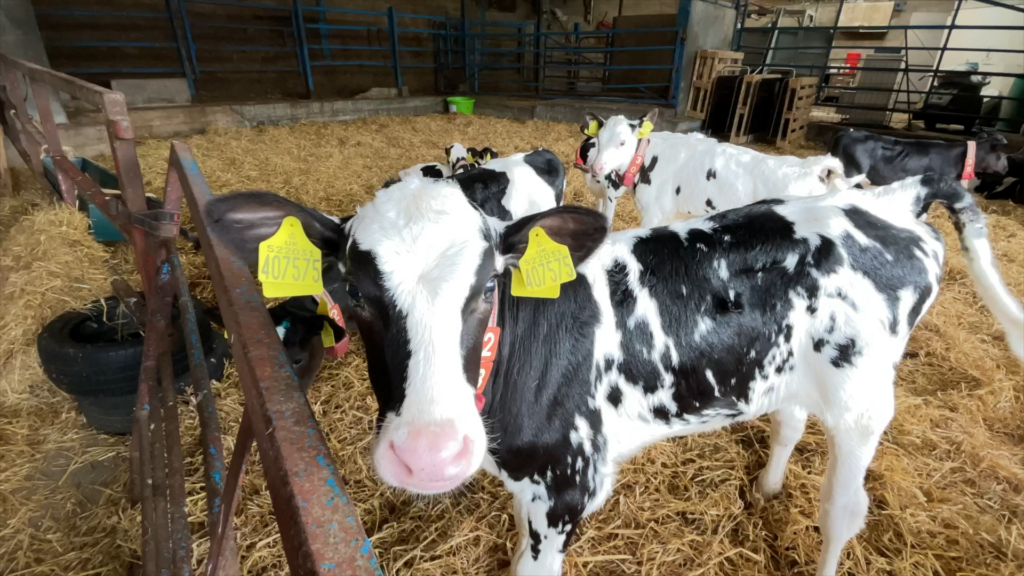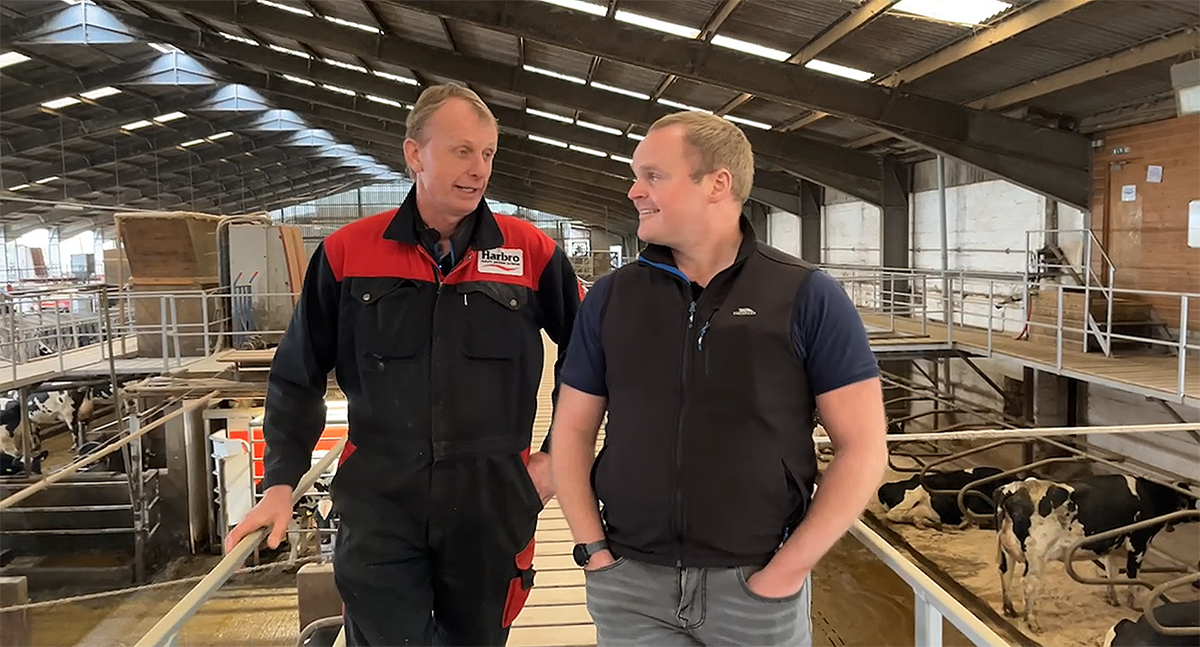The UK Agri-Tech Centre team recently revisited Mackie’s to look at the lasting effects of the Healthy Heifer project, which concluded two years ago. This project took calf-monitoring technology to the next level, introducing new modules designed to track the fertility and overall health of older animals. By addressing critical issues such as scour, pneumonia and overall health management, it aimed to improve the welfare of calves and dairy cows alike—key elements for a successful dairy operation.
At Mackie’s, where a fully automated system manages around 320 cows and welcomes around 30 calves each month, the Healthy Heifer project continues to have a lasting impact. It helps the team monitor medical treatments and weight progressions, providing a clear and real-time overview of calf development. Through a sophisticated combination of smart ear tags and a monitoring system, Mackie’s receives daily insights into which animals require attention. This early intervention leads to significant improvements in welfare and reductions in medical interventions, including antibiotic use.
David Smurthwaite, Herd Manager at Mackie’s Dairy, reflected on the project:
“Initially, I was working in a completely different role, but as the data started coming in, I realised how much we could learn. The technology highlighted calves that appeared healthy but had underlying health issues. By identifying problems early, we could address them before they became serious, leading to healthier calves and fewer antibiotic treatments.”

This technology has transformed their approach to managing animal health. The team now regularly checks the app for updates on which animals need attention, emphasising the importance of early life management.
David noted,
“Early life management is critical, as it can affect up to 10% of a cow’s milk yield and reduce its time in milk by 108 days. We’ve seen reductions in antibiotic use and healthier growth in calves treated earlier. The project has helped us realise the long-term impacts of health issues that many farmers overlook.”
The Healthy Heifer project aimed to provide dairy farmers with access to real-time data on young livestock, covering everything from genetics and nutrition to activity and health. This comprehensive data collection not only boosts heifer health but also supports the sustainability of UK dairy farming by lowering greenhouse gas emissions during the rearing period and helping the sector work towards its net-zero goals.
Currently, the average age for first calving on British dairy farms is around 26 months, missing the target of 24 months. The project set ambitious goals to achieve 95% of heifers reaching first lactation, halving losses and working to lower the average first calving age.
David emphasised,
“We’re aiming to cut the numbers of new heifers needed by 10%. Retaining healthier heifers will ultimately improve a herd’s longevity, productivity and profitability while also significantly reducing greenhouse gas emissions over the rearing period.”
The Healthy Heifer project integrated a wide range of data from various sources, employing advanced sensing technology and farm records to create a complete picture of individual animal conditions. A dedicated data analysis platform continuously monitored these inputs, providing real-time health and performance flags that helped optimise management interventions.
David concluded:
“What we learned from the Healthy Heifer project has exposed gaps in our management practices that we were previously unaware of. We’ve improved our ventilation, hygiene procedures and overall management protocols as a direct result. This technology has really helped us refine our practices and focus on keeping our calves healthy from day one.”
The Healthy Heifer project shows the long-term impact of technology and how it can enhance dairy farming. By integrating data and better decision-making, there has been a positive increase to animal welfare and productivity but also sustainability and efficiency in UK dairy farming. As we look back two years later, the project’s impacts continue to shape Mackie’s farm management.
Incremental innovation in production is a hallmark of Mackie’s approach. The team continually seeks ways to improve their processes, from optimising resource use to adopting eco-friendly packaging solutions. For instance, the use of biodegradable packaging is part of their commitment to reducing environmental impact. In addition to this, their “Sky to Scoop” approach focuses on generating renewable energy to power operations. The farm has integrated wind turbines, solar panels and a biomass plant into their energy strategy, significantly reducing their environmental footprint.
